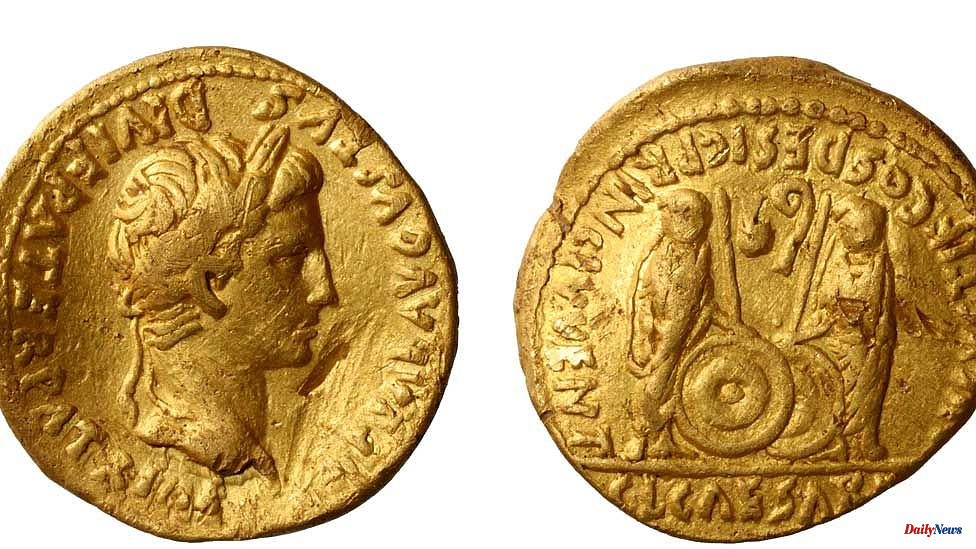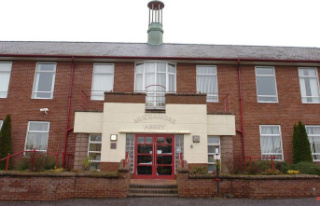Discovered in the years before the Roman invasion of Britain, a hoard of Roman gold coins was discovered.
So far, eleven coins have been discovered scattered around the territory of Iceni tribe territory near Norwich. Later, their queen Boudica rebelled against Roman rule.
Adrian Marsden, a numismatist, said that the hoard was "really quite extraordinary" and that more coins could be found.
A Norfolk Coroner's Court inquest into the latest finds was conducted. They were deemed treasure.
Two metal detectorists discovered the first coins in 2017, and have continued to uncover more.
Mr Marsden from the Norfolk Historic Environment Service said that "In the past two or three years they've said, ‘There won’t be any more.’ And I've stated, 'There’ll be.’ And sure enough, they pull out another one.
"Hoards are dispersed by ploughs and tractors, so coins can be moved around fields and can travel quite a distance."
Source: Portable Antiquities Scheme
They were struck at Lugdunum (now Lyon) in France between the last year of the 1st century BC and the first year of the 1st century AD, a generation before Roman invasion in AD43.
They are in excellent condition and have never been worn. Each one has a tiny peck mark at the head of Augustus, which Mr Marsden believes was made by Iceni craftsmen to verify their quality.
He said, "These coins are high purity gold. The Iron Age gold coin circulation at that time was quite debased. They knew good Roman gold when it was seen."
Marsden thinks an Iceni goldsmith may have wanted to create gold torcs similar to those found at Ken Hill at Snettisham in 1948-1990.
He stated, "To have a hoard with coins from before or after the Roman invasion is truly extraordinary."
The British Museum acquired the first nine coins, and it is expected to acquire the most recent finds.
BBC News: East of England is available on Facebook, Instagram, and Twitter. If you have a story suggestion email eastofenglandnews@bbc.co.uk












